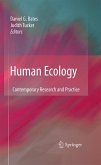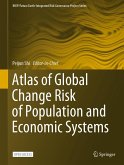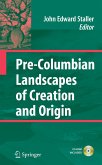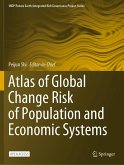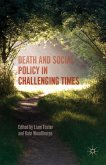This comprehensive sourcebook on human ecology combines 25 source articles published in the journal Human Ecology, enhanced with new research updates and thematic commentary. Intended as a follow up to Case Studies in Human Ecology, this volume includes an entirely new group of articles, with the same accessible, comprehensive coverage that made Case Studies so popular.
Human Ecology: Research and Practice covers four important areas: Philosophy, Theory and Methods; Changing Subsistence Practices; Agricultural Intensification and Population Dynamics; and, Common Property Resources and Conservation. As a group, these articles represent the major contributions to the study of Human Ecology since the publication of the previous volume.
Each article includes a concise introduction by the Editor, giving necessary and thoughtful context. The volume covers an overview of human ecology as a field within environmental studies, new directions in contemporary research, new methods and techniques, and cultural landscapes. Anyone studying human ecology, environmental studies, landscape studies, or population dynamics, particularly key issues such as conservation and globalization will find this comprehensive reader a valuable resource.
This book arose from the need to develop accessible research-based case study material which addresses contemporary issues and problems in the rapidly evolving field of human ecology. Academic, political, and, indeed, public interest in the environmental sciences is on the rise. This is no doubt spurred by media coverage of climate change and global warming and attendant natural disasters such as unusual drought and flood conditions, toxic dust storms, pollution of air and water, and the like. But there is also a growing intellectual awareness of the social causes of anthropogenic environmental impacts, political vectors in determining conser- tion outcomes, and the role of local representations of ecological knowledge in resource management and sustainable yield production. This is reflected in the rapid increase of ecology courses being taught at leading universities in the fa- growing developing countries much as was the case a decade or two ago in Europe and North America. The research presented here is all taken from recent issues of Human Ecology: An Interdisciplinary Journal. Since the journal itself is a leading forum for cont- porary research, the articles we have selected represent a cross-section of work which brings the perspectives of human ecology to bear on current problems being faced around the world. The chapters are organized in such a way to facilitate the use of this volume either to teach a course or to introduce an informed reader to the field.
Hinweis: Dieser Artikel kann nur an eine deutsche Lieferadresse ausgeliefert werden.
Human Ecology: Research and Practice covers four important areas: Philosophy, Theory and Methods; Changing Subsistence Practices; Agricultural Intensification and Population Dynamics; and, Common Property Resources and Conservation. As a group, these articles represent the major contributions to the study of Human Ecology since the publication of the previous volume.
Each article includes a concise introduction by the Editor, giving necessary and thoughtful context. The volume covers an overview of human ecology as a field within environmental studies, new directions in contemporary research, new methods and techniques, and cultural landscapes. Anyone studying human ecology, environmental studies, landscape studies, or population dynamics, particularly key issues such as conservation and globalization will find this comprehensive reader a valuable resource.
This book arose from the need to develop accessible research-based case study material which addresses contemporary issues and problems in the rapidly evolving field of human ecology. Academic, political, and, indeed, public interest in the environmental sciences is on the rise. This is no doubt spurred by media coverage of climate change and global warming and attendant natural disasters such as unusual drought and flood conditions, toxic dust storms, pollution of air and water, and the like. But there is also a growing intellectual awareness of the social causes of anthropogenic environmental impacts, political vectors in determining conser- tion outcomes, and the role of local representations of ecological knowledge in resource management and sustainable yield production. This is reflected in the rapid increase of ecology courses being taught at leading universities in the fa- growing developing countries much as was the case a decade or two ago in Europe and North America. The research presented here is all taken from recent issues of Human Ecology: An Interdisciplinary Journal. Since the journal itself is a leading forum for cont- porary research, the articles we have selected represent a cross-section of work which brings the perspectives of human ecology to bear on current problems being faced around the world. The chapters are organized in such a way to facilitate the use of this volume either to teach a course or to introduce an informed reader to the field.
Hinweis: Dieser Artikel kann nur an eine deutsche Lieferadresse ausgeliefert werden.



